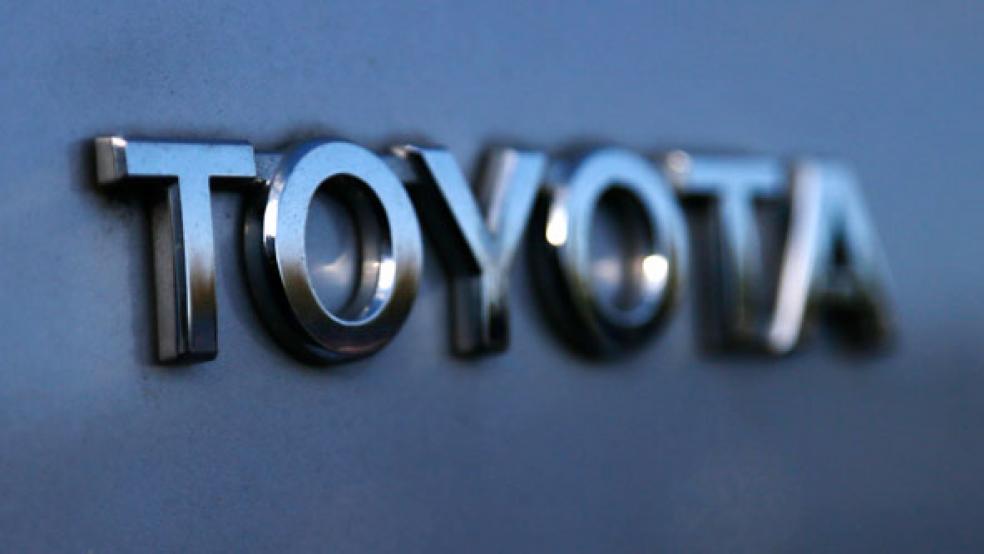The quality ratings of Toyota rebounded to the top, as two domestic automakers fell in a bell-weather report issued today. Consumer Reports' 2012 Auto Reliability Survey showed that Ford Motor Company dropped from 20th in 2011 to 27th this year among 28 car brands, while Chrysler dropped from number 15 to 23. The Toyota nameplate, which had fallen slightly last year, rose to the second highest-rated spot this year with 16 of its 27 models earning the top rating. The Toyota-owned Scion scored the highest among all manufacturers.
At the same time, one previously lagging European car company improved this year: Audi surged 18 spots, rising to number eight. The report, considered the largest of its kind, is the result of questionnaires sent to subscribers discussing issues they've had with their vehicles. It encompasses 1.2-million vehicles and over 300 new and used models.
Ford "had a pretty bad year," said Jake Fisher, Consumer Reports auto test director, at an October 29th Automotive Press Association lunch in Detroit. He pointed out that "sixty percent of Ford-branded models and half of Lincolns were below average in predicted reliability, and none placed above average." This was partly due to complaints with its MyFord Touch high-tech infotainment system, which includes touch-screen controls for audio and climate. Fisher said that while the traditional mechanics on cars, like brakes and steering, are getting better, issues with high-tech bells and whistles are posing problems. Another contributing factor was Ford's new PowerShift transmission system, which was designed to achieve better fuel efficiency, but consumers complained it resulted in rough shifting of the gears.
"Only two years ago, Ford was Detroit's poster child for reliability," Consumer Reports writes. "Since then, a perfect storm of reliability problems has dropped Ford to next to last among the 28 brands in our survey.” In response to the survey, Francesca Montini, a Ford spokeswoman, says that MyFord Touch is generating positive feedback from customers, with owners reporting a 25 percentage point increase in satisfaction after a software upgrade was issued in March. She said that 71 percent of owners with the upgrade say they would recommend MyFord Touch to their friends.
For Chrysler, the worst-rated models were the Chrysler 300 V8 and the Jeep Grand Cherokee V8 (though the report did recommend the V6 Jeep Grand Cherokee). Doug Betts, senior vice president, Quality, Chrysler Group LLC, seemed surprised by the findings. He said the company's warranty claim data was 25 percent better for 2012 model year than 2011 model year, so it had expected this survey to show improvement. "Chrysler Group has made significant strides in improving the quality of the entire product line in recent years which has been reflected in a variety of different surveys," he said.
General Motors was a bright spot among the domestics, as Cadillac jumped 14 spots, to number 11. Fisher said GM is "working out the bugs" on models introduced over the past several years among all of its product lines.
Audi's ascent "was a big surprise," Fisher said. Six of the seven Audis in the survey rated average or better. "The significant gains shown by Audi models demonstrate the top priority that everyone in our organization has placed on ensuring our quality," said Scott Keogh, President of Audi of America. BMW, Mercedes-Benz and Volkswagen had mixed results, with some vehicles faring well and others being rated poorly.
Though experts have expressed some concern with the reliability of hybrids and electric vehicles in the past, particularly when it comes to replacing expensive batteries, Fisher said that environmentally friendly cars are proving to be reliable. Toyota's new Prius C hybrid was the most reliable of all of its models. The same was true for Nissan with its all-electric Leaf and for Chevy with its electric-hybrid Volt. In the case of the Leaf, Fisher speculates that having a simple electric motor instead of a more complex internal combustion engine might contribute to fewer problems.




